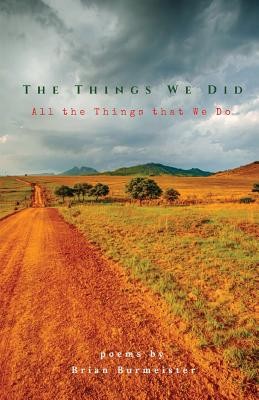
- We will send in 10–14 business days.
- Author: Brian Burmeister
- Publisher: Finishing Line Press
- Year: 2019
- Pages: 46
- ISBN-10: 1635348439
- ISBN-13: 9781635348439
- Format: 14 x 21.6 x 0.3 cm, softcover
- Language: English
- SAVE -10% with code: EXTRA
Reviews
Description
This poetry collection addresses the effects of war in Darfur and throughout Africa. The American response/lack of response to such crises is also explored within the collection.
In the tradition of Carolyn Forche and Yusef Komunyakaa, Brian Burmeister’s first collection of poems, The Things We Did, All the Things that We Do, asks us to attend to the suffering of our fellow human beings and be present to the brutal realities of genocide and war, but also to bear witness to the persistent and insistent promises of hope survivors carry with them. The poems in this collection force a reckoning with our individual and political refusals—refusals to act on behalf of others or even to acknowledge their suffering: The president wrote, “Not on my watch,” / In the margins of a memo, / Then proceeded not to look. The poet insists that we must not only look, but asks of us, as the victims ask of those who seek to destroy their lives: But do you know our names?… But do you know our names? And in that unbearable question the distance between us and the perpetrators begins to vanish. In naming, we bear witness to the violence of our indifference and to our own responsibility to co-create a world with survivors where the promise of comfort and welcome is honored, the Promise / of something, somewhere.
—Heather Derr-Smith, Author of Thrust and Human Rights Advocate
This collection is breathtaking, an intensely haunted account (in part) of life in and around warring Eastern Africa nations.
—Bola Opaleke, Author of BrOkEn GhAzAl fOr AfRiKa
EXTRA 10 % discount with code: EXTRA
The promotion ends in 17d.14:13:21
The discount code is valid when purchasing from 10 €. Discounts do not stack.
- Author: Brian Burmeister
- Publisher: Finishing Line Press
- Year: 2019
- Pages: 46
- ISBN-10: 1635348439
- ISBN-13: 9781635348439
- Format: 14 x 21.6 x 0.3 cm, softcover
- Language: English English
This poetry collection addresses the effects of war in Darfur and throughout Africa. The American response/lack of response to such crises is also explored within the collection.
In the tradition of Carolyn Forche and Yusef Komunyakaa, Brian Burmeister’s first collection of poems, The Things We Did, All the Things that We Do, asks us to attend to the suffering of our fellow human beings and be present to the brutal realities of genocide and war, but also to bear witness to the persistent and insistent promises of hope survivors carry with them. The poems in this collection force a reckoning with our individual and political refusals—refusals to act on behalf of others or even to acknowledge their suffering: The president wrote, “Not on my watch,” / In the margins of a memo, / Then proceeded not to look. The poet insists that we must not only look, but asks of us, as the victims ask of those who seek to destroy their lives: But do you know our names?… But do you know our names? And in that unbearable question the distance between us and the perpetrators begins to vanish. In naming, we bear witness to the violence of our indifference and to our own responsibility to co-create a world with survivors where the promise of comfort and welcome is honored, the Promise / of something, somewhere.
—Heather Derr-Smith, Author of Thrust and Human Rights Advocate
This collection is breathtaking, an intensely haunted account (in part) of life in and around warring Eastern Africa nations.
—Bola Opaleke, Author of BrOkEn GhAzAl fOr AfRiKa


Reviews